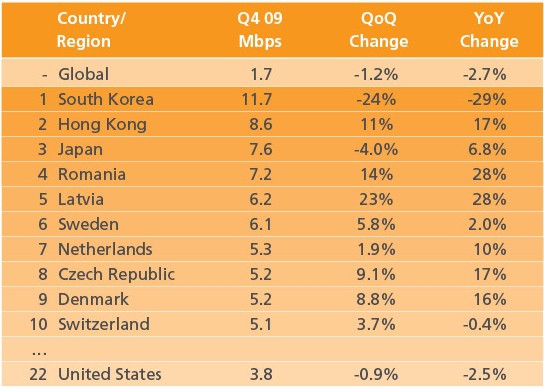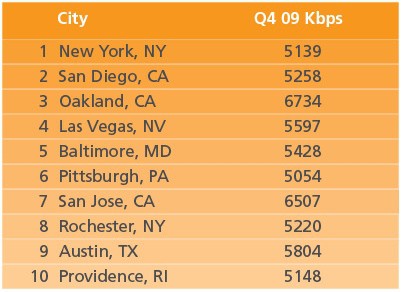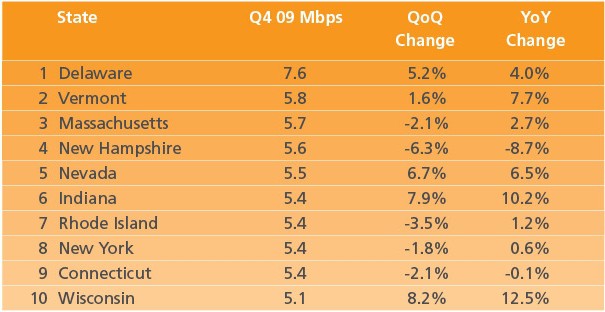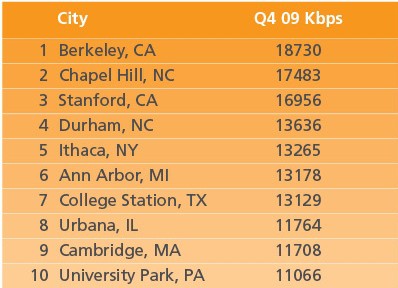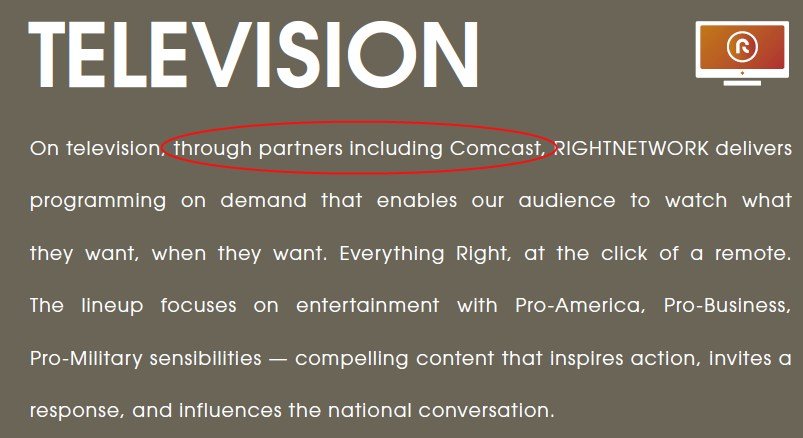Beating a Dead Horse: Bell Labs Achieves 300Mbps DSL Broadband Speeds… Over a Distance of 400 Meters
![]() Bell Labs, a division of Alcatel-Lucent, has found a way to extract more speed over aging copper wire most phone companies still rely on to deliver service. Its latest achievement, in the lab anyway, proved those wires could accommodate 300Mbps downstream speeds, at least if you were within 400 meters (that’s just over 1,300 feet) from phone company facilities. Further on, the company was able to achieve 100Mbps speeds over a distance of one kilometer (0.62 miles).
Bell Labs, a division of Alcatel-Lucent, has found a way to extract more speed over aging copper wire most phone companies still rely on to deliver service. Its latest achievement, in the lab anyway, proved those wires could accommodate 300Mbps downstream speeds, at least if you were within 400 meters (that’s just over 1,300 feet) from phone company facilities. Further on, the company was able to achieve 100Mbps speeds over a distance of one kilometer (0.62 miles).
Stop the Cap! reader Jeff writes wondering what impact such improvements have when they are measured in distances more commonly associated with a sprinting event. Phone companies are well aware of the limitations of their legacy networks. Some, like Verizon, decided the network designed more than a century ago was destined for the scrap heap. They began to deploy fiber-optic based networks instead. Others are trying to extract as much as they can from copper, as cheap as they can for as long as they can.
The problem with copper wiring is that the longer the distance, the slower the data speed those lines will support. Interference or crosstalk from neighboring cables crammed together into a bundle can also create major problems, especially at longer distances.
Bell Labs says it has devised a way around the crosstalk problem with the testing of its “DSL Phantom Mode” solution:
At its core, DSL Phantom Mode involves the creation of a virtual or “phantom” channel that supplements the two physical wires that are the standard configuration for copper transmission lines. Bell Labs’ innovation and the source of DSL Phantom Mode’s dramatic increase in transmission capacity lies in its application of analogue phantom mode technology in combination with industry-standard techniques: vectoring that eliminates interference or “crosstalk” between copper wires, and bonding that makes it possible to take individual lines and aggregate them.
In the eyes of Alcatel-Lucent, Bell Labs has found an answer to the dilemma of what role phone companies can play in a 100Mbps broadband future.
“We often think of the role innovation plays in generating technologies of the future, but DSL Phantom Mode is a prime example of the role innovation can play in creating a future for existing solutions and injecting them with a new source of value,” said Gee Rittenhouse, head of Research for Bell Labs. “What makes DSL Phantom Mode such an important breakthrough is that it combines cutting edge technology with an attractive business model that will open up entirely new commercial opportunities for service providers, enabling them in particular, to offer the latest broadband IP-based services using existing network infrastructure.”
Before getting too excited, remember these demonstration tests occurred in a laboratory environment. No squirrels chewed up the cables. No water leaking into cracks in the cable’s insulation or a connection box caused issues. No aging splices of corroded copper wiring up on poles since the late 1960s were found. Your home’s own phone wiring was also never part of the equation.
Distance is still a considerable limiting factor in DSL deployments. Most of the benefits of this research will go to companies like AT&T, which uses a hybrid fiber-copper wire network in its U-verse areas. The fiber cuts down the distance from a phone company office to a neighborhood. Once in your neighborhood, traditional copper wires run the rest of the way, right up into your home. If AT&T can leverage additional speed from its weakest link — the copper-based phone line — it may be able to use the additional bandwidth to boost broadband speed or accommodate more concurrent applications they cannot support today.
For phone companies still dependent on long distances of copper wiring, the expense of bootstrapping Alexander Graham Bell’s century-old network begins to look silly.
 Sometimes it’s better to build anew instead of repeatedly trying to fix the old. And many are doing exactly that.
Sometimes it’s better to build anew instead of repeatedly trying to fix the old. And many are doing exactly that.
Hundreds of small independent telecoms, broadband service providers, municipalities and cable television companies have brought gigabit-enabled, all-fiber service to a total of more than 1.4 million North American homes – about a quarter of all fiber to the home connections on the continent – according to the Fiber-to-the-Home (FTTH) Council.
The FTTH Council noted in a recent study more than 65 percent of small independent telephone companies that have not upgraded to FTTH said they would very likely do so in the future, with another 11 percent saying they were somewhat likely. More than 85 percent of those that have already deployed FTTH said they would be adding more direct fiber connections going forward.
Surprisingly most of this expansion outside of Verizon’s FiOS service comes from small family-owned companies, cooperatives, and the remaining independent phone companies not snapped up by Frontier, Windstream, and CenturyLink.
“To continue to meet the rapidly growing bandwidth requirements for emerging applications and services, these companies know that they have to ‘future-proof’ their networks by running fiber all the way to the premises – and that’s why we are seeing all this activity,” says Joe Savage, President of the FTTH Council.
“In many cases, these small telephone companies are longtime family-owned businesses that are deeply involved in local affairs and are responsive to their community needs for faster broadband as a key to future economic development,” said Mike Render, president of RVA LLC and the author of the study. “That’s why so many of these companies are looking to get into FTTH or expand their deployments,” he said.


 Subscribe
Subscribe
